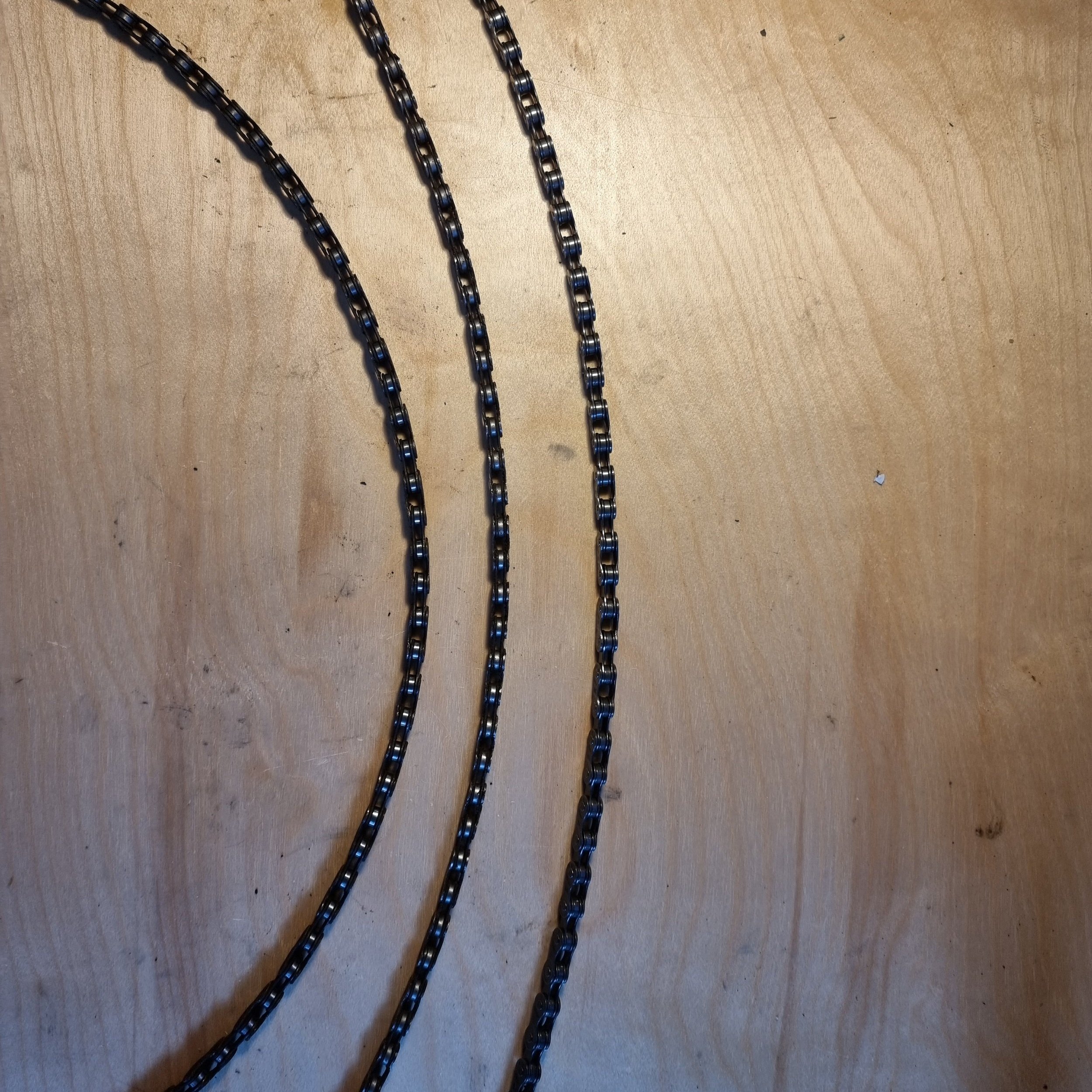Advice & Tips
To keep your bike running smooth and trouble free, following this advice garnered from our years of experience will save you both time and money and give peace of mind in the long run.
Chains
Often overlooked but crucial to your bikes running and safety, this key piece of equipment will reward you many times over for the care you give it.
Crucially - don’t leave it too late.
A dirty chain will cause excess wear to the cassette and chainrings. Clean it regularly.
Lubrication, once clean apply a small amount of lubrication to prevent rust and keep shifting smooth.
Wear - as a chain wears it stretches, and will start to cause premature wear to your cassette. replacing a relatively inexspensive chain after 2000 miles before it is too worn will give you far more wear from your cassette, which may no longer work with a new chain if you leave it too long! you can expect a cassette to last 2 or 3 chains if you look after them.
Does your chain have excessive wear
Then it’s time for a new one.
How worn is my chain?
Left a worn out chain, vs one with some life left, and a new one, right.
Brakes
Your bikes brakes are one of the most important parts if your bicycle and its safe operation, and should be checked regularly to ensure they remain effective when you need them.
Rim Brakes
When is time for new pads?
Signs you need new pads or your braking system to have an overhaul can include:
Excessive lever travel
Lack of power or confidence in your brakes
Vibration under braking
excessive noise under braking
Sponginess at the lever
Brakes rubbing
Uneven wear - left
caused by incorrect toe-in
Disc Brakes
Disc brakes offer many advantages over rim brakes and are found on all types of bike now. While more expensive, they offer superior stopping power, especially in the wet, there is also no wear to the rim, which wears along with rim brake pads. They however can only be fitted to a bike and wheel system specifically designed for them.
Brake discs come in different styles
Top, a large diameter floating disc suitable for heavy use, i.e. Downhill mountain biking, below a regular disc suitable for most bikes.
Disc brake pads
Disc brake pads need changing regularly depending on use and condition, poorly adjusted brake caliper will cause premature wear and friction leading to poor performance.
Old vs New
If your pads look like the ones on the left, its time for a new set.
Each brake system will have its own pad size and shape, make sure you have the correct ones to hand.
Hydraulic vs Cable operated brakes.
each type of system has its pros and cons:
Cable operated brakes
Are cheaper, simpler to maintain but don’t offer the stopping power or fine adjustment of a good hydraulic system. Cables as well as pads may need replacing regularly.
Hydraulic brakes
Offer the best stopping power and once fitted only rarely need servicing depending on use, however servicing should be undertaken by a trained mechanic due to the tools and expertise required.







